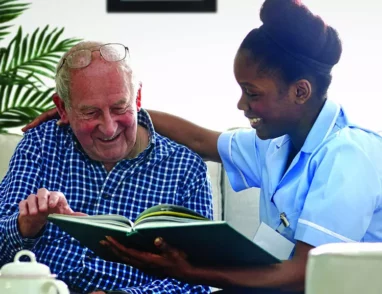Virtual Groups for MACRA 2018: A Win For Small & Rural Practices
June 14, 2017 · Amy Maciejowski
As you know, NCQA has a vested interest in MACRA. When the final rule was released, we commented on it. One of the aspects we wanted them to work on was virtual groups. Some small and rural practices do not have the bandwidth to participate in MIPS- virtual groups aim to give them more flexibility and make participation a little easier. To put it simply, small and rural practices have the option to band together and form a “virtual” group to work towards their MIPS reporting.
Today, CMS released further details regarding virtual groups. Here’s some of the proposed guidelines:
- The virtual group option goes live in 2018. Starting with the 2018 MIPS performance period, CMS created a virtual group reporting option to support small and rural practices.
- The group consists of a combination of Tax Identification Numbers (TINs). This would include either…
- Two separate TINs associated with a solo practitioner TIN and National Provider Identifier (TIN/NPI)
- A group with 10 or fewer MIPS-eligible clinicians and another solo practitioner (TIN/NPI).
- A group with 10 or fewer MIPS eligible clinicians.
- Practices can select their groups. The proposed requirements allow an individual MIPS eligible clinician or group (if there’s no more than 10 clinicians) to belong to a virtual group with at least one other individual MIPS eligible clinician or group.
- Performance matters. If a practice elects to be part of a virtual group, they will be assessed with everyone else in the virtual group. Their scores for quality and cost performance categories will be combined and applied to each clinician in the virtual group.
Here’s What We Think
We’ve been waiting for this. We commented on the likelihood and potential benefits of virtual groups last year.
Specifically, virtual groups will help small and rural practices do what MACRA aims to do: come together, share financial risk and work as a group towards a shared goal. By promoting joint accountability, the delivery system as a whole will have a better chance at improving the cost, quality and experience of care.
There’s something we are still looking for, though. CMS should consider awarding MIPS bonus points to clinicians who form virtual groups, since it’s estimated that smaller practices may receive lower average MIPS scores. Bonus points could provide help to small and rural practices that might have a harder time achieving high scores in MIPS.
Why Not Partner Together
NCQA-recognized practices make ideal virtual group partners.
They’ve already shown that they put patients first and deliver coordinated, high-quality care. Evidence shows PCMH practices perform better than non-PCMH practices in all the areas MIPS measures.
There’s a few ways to pick your partners:
- Look for other PCMHs in the same geographic areas. You can search by state here.
- Partner based on specialty. If you are a recognized PCSP, find others who are submitting the same specialty measures as your practice.
You can find more information about the proposed virtual groups here. We will provide comments on the proposed guidelines and will update as we have more information. Comment below with any questions and/or concerns.








